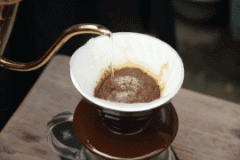A brief introduction to the treatment method of grinding degree and baking degree of balanced Salvadoran coffee Renas manor

Salvadoran coffee
Today, this coffee accounts for 40% of the country's exports. 35% of the extra hard beans of the best coffee are exported to Germany from January to March.
In the early 1990s, guerrilla warfare greatly damaged the country's national economy, reducing coffee production from 3.5 million bags in the early 1970s to 2.5 million bags in 1990-1991. The eastern part of the country was most affected by guerrilla warfare, and many farmers and workers were forced to leave the manor. The shortage of funds has led to a sharp drop in coffee production, from 1200 kg per hectare in the past to less than 900kg per hectare today. In addition, the government imposed an additional 15% tariff on exported coffee in 1986, that is, an additional 15% in addition to the existing 30% tax. Taxes, together with unfavorable exchange rates, have greatly reduced the export of coffee and the quality of coffee.
The government finally realized the great role of coffee in the national economy, such as solving employment, earning foreign exchange and developing agriculture, so it privatized some coffee export industries in 1990, hoping to increase the yield of coffee in the export market. This coffee has a strong fruit flavor, from dry land, raisins, honeydew, dried bananas, malt syrup and wild honey to a hint of tobacco. We can feel a very strong, rustic syrup aroma, rich spice flavor, with the feeling of sweet wine when it is deep baked. This must not be like the washed Salvadoran coffee you've tasted before! The cup test guarantees: strong fruit flavor, thick texture, simple sweetness, taste like sugar grains. I would like to use a harsher word: is this a bit too much? This word seems to be more appropriate. Ripe melon, dried banana, peach and mango flavors
Flavor: balanced taste and good texture
Recommended baking method: moderate to deep, with a variety of uses
Top quality beans: El Salvador SHB
Taste characteristics: sour, bitter, sweet mild and moderate.
Salvadoran coffee ranks side by side with Mexico and Guatemala as the producers of Asa and Merdo, and is fighting for the top one or two places in China and the United States with other countries. The highlands of origin are large coffee beans of all sizes, which are fragrant and mild in taste. Like Guatemala and Costa Rica, coffee in El Salvador is graded according to altitude. The higher the altitude, the better the coffee. It is divided into three grades according to elevation: SHB (strictly high grown) = highlands, HEC (high grown central) = mid-highlands, and CS (central standard) = lowlands. The best brand is Pipil, which is what the Aztec-Mayan (Aztec-Mayan) called coffee, which has been recognized by the American Organic Certification Society (Organic Certified lnstitut eof America).
Unique, mild Salvadoran coffee
El Salvador is one of the small countries in Central America with a dense population. The flavor of its coffee is characterized by excellent balance.
Important Notice :
前街咖啡 FrontStreet Coffee has moved to new addredd:
FrontStreet Coffee Address: 315,Donghua East Road,GuangZhou
Tel:020 38364473
- Prev

Brief introduction of El Salvador Coffee Bean Renas Manor Fine Coffee Bean Variety planting Market Price
Taste introduction: aroma: sweet flower flavor (jasmine, lavender, coffee flower,) 4tick 6, sweet orange flavor (lemon orange orange) 1 hand 6 sweet berry flavor (cherry apricot strawberry), almond flavor, peanut flavor, barley flavor, corn flavor, sugar dense flavor, dark chocolate flavor, Swiss chocolate flavor. Taste: smooth El Salvador Warriors Manor coffee beans, Warriors Manor Farm is very close to Santa Ana Fire
- Next

Planting situation of Renas Manor Coffee Manor in El Salvador A brief introduction to the production of climate and altitude
In the early 1990s, guerrilla warfare greatly damaged the country's national economy, reducing coffee production from 3.5 million bags in the early 1970s to 2.5 million bags in 1990-1991. The eastern part of the country was most affected by guerrilla warfare, and many farmers and workers were forced to leave the manor. The shortage of funds has led to a sharp drop in coffee production, from 1200 kg per hectare in the past to today's yield per hectare
Related
- Does Rose Summer choose Blue, Green or Red? Detailed explanation of Rose Summer Coffee plots and Classification in Panamanian Jade Manor
- What is the difference between the origin, producing area, processing plant, cooperative and manor of coffee beans?
- How fine does the espresso powder fit? how to grind the espresso?
- Sca coffee roasting degree color card coffee roasting degree 8 roasting color values what do you mean?
- The practice of lattes: how to make lattes at home
- Introduction to Indonesian Fine Coffee beans-- Java Coffee producing area of Indonesian Arabica Coffee
- How much will the flavor of light and medium roasted rose summer be expressed? What baking level is rose summer suitable for?
- Introduction to the characteristics of washing, sun-drying or wet-planing coffee commonly used in Mantenin, Indonesia
- Price characteristics of Arabica Coffee Bean Starbucks introduction to Manning Coffee Bean Taste producing area Variety Manor
- What is the authentic Yega flavor? What are the flavor characteristics of the really excellent Yejasuffi coffee beans?

